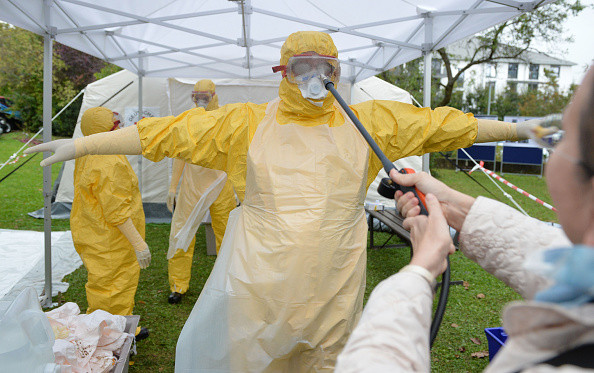WHO: Ebola Cases in Europe 'Unavoidable'

A senior official at the World Health Organization warned on Tuesday that Europe will likely see more cases of deadly Ebola but the continent is well prepared to battle out the disease.
Such imported cases and similar events as have happened in Spain will happen also in the future, most likely. It is quite unavoidable... such incidents will happen in the future because of the extensive travel both from Europe to the affected countries and the other way around.
"Such imported cases and similar events as have happened in Spain will happen also in the future, most likely. It is quite unavoidable... such incidents will happen in the future because of the extensive travel both from Europe to the affected countries and the other way around," said Zsuzsanna Jakab, WHO European director.
The Spanish nurse infected with the Ebola virus was the first Ebola infection case outside of Africa.
The nurse contracted the virus after treating a Spanish priest who was infected in Sierra Leone. She remained ill roughly for a week before testing positive on Monday.
Health officials fear that she might have passed on the infection to others during the period where she wasn't yet diagnosed with Ebola.
Ebola has an incubation period of up to 21 days, and the most contagious phase is when infected patients display symptoms, like fever, vomiting and diarrhea.
Meanwhile, Spanish health officials said four people have been hospitalized to curb the spread of Ebola there, reported Reuters.
Peter Piot, the scientist who first identified the virus over 40 years ago, said the Spanish case didn't surprise him at all.
"I could answer you: 'I told you so'. There is no risk that I see for an outbreak (in Europe), but there will be people most likely, particularly in intensive care units, who will become infected. When you consider that dealing with patients with Ebola illness, who are sick, is a very risky business - and the slightest mistake can be fatal."
I could answer you: 'I told you so'. There is no risk that I see for an outbreak (in Europe), but there will be people most likely, particularly in intensive care units, who will become infected. When you consider that dealing with patients with Ebola illness, who are sick, is a very risky business - and the slightest mistake can be fatal.
Jakab remains hopeful, however, and says Western Europe is, "the best prepared" region to battle out the deadly outbreak.
The European Centre for Disease Prevention and Control (ECDC) also confirmed on Tuesday that the region's health authorities, "can efficiently detect and confirm cases of Ebola virus disease and thus prevent its onward spread".
While United States is considering screening people arriving from the affected countries in West Africa, Jakab doesn't think it's necessary in Europe at the moment.
"I know the United States is planning to do that, but in Europe it has not been introduced yet. It depends how the epidemic develops (in the future). This might be an issue to take on board and consider."
© Copyright IBTimes 2025. All rights reserved.






















